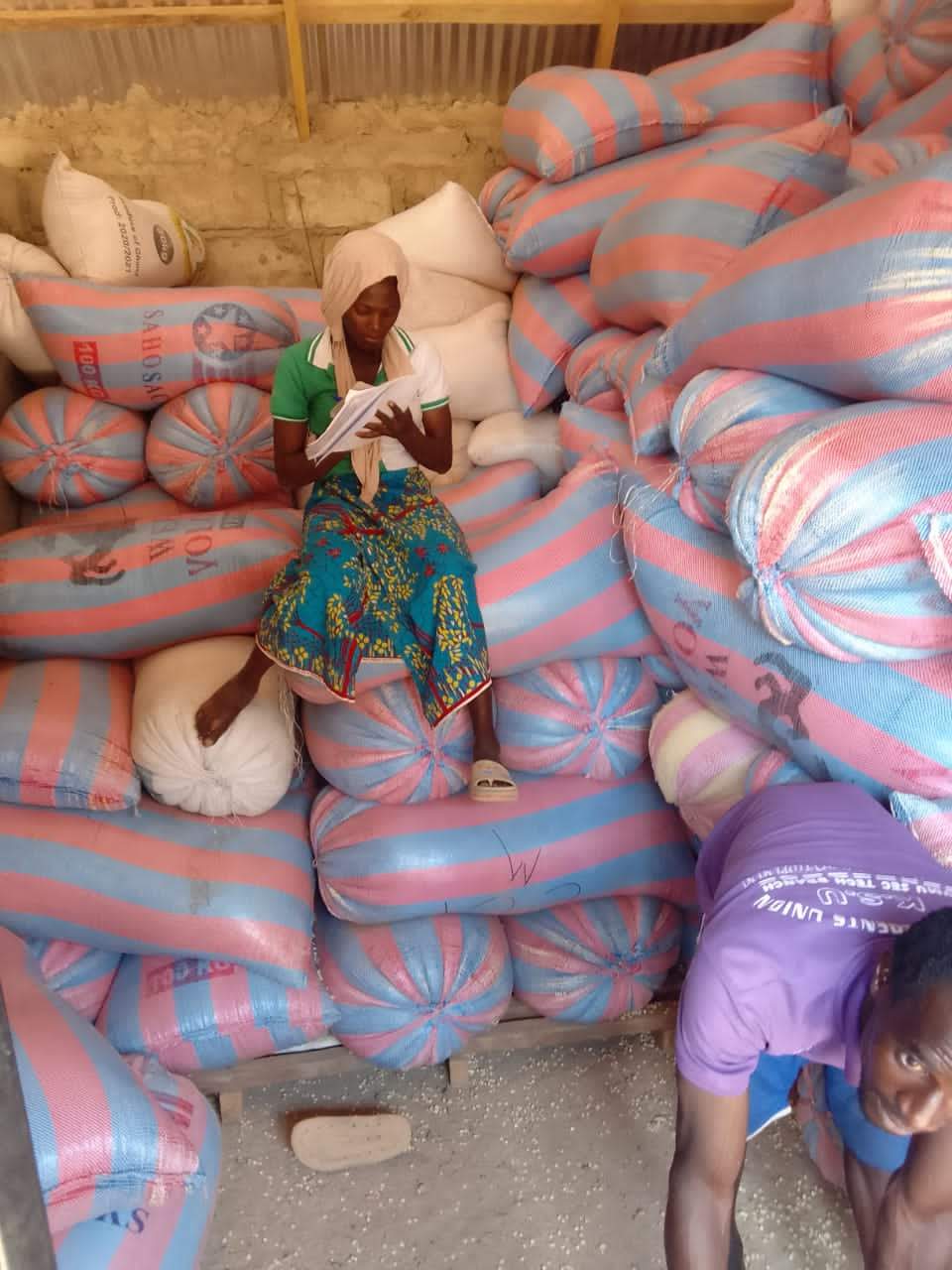Warc impact story
Transforming farming communities in Ghana
Primary agricultural production is the main source of income for more than 80% of the population in rural communities in Ghana. These communities of mainly smallholder farms supply roughly two-thirds of Ghana’s agricultural output. However, approximately 67% of Ghana’s rural population are classified as poor and 26% are food insecure.
Smallholder farmers are caught in a cycle of poverty and food insecurity due to low productivity levels, poor access to markets, and lack of pricing transparency. Input dealers struggle to deliver products to smallholder farmers at scale due to high costs; and agri-processors, such as feed processors, struggle to source raw materials efficiently from fragmented and widely distributed farmers.
Warc Hub Manager Sharifa Benin records maize being loaded on a truck for a downstream buyer. December 2022, Lilixia community, Ghana.
To address these challenges, Warc launched a hub-and-spoke distribution and aggregation model with trading centres based within farming communities. These hubs enable farmers to sell their produce, buy high-quality inputs, and access mechanisation services and technical guidance. Farmers can trade frequently with no minimum volume, with proximity reducing time and logistics costs – helpful especially to women farmers who tend to trade smaller volumes and experience more time and mobility constraints.
The hubs employ local women as managers and administrators. Early impacts include:
- The number of transactions has risen dramatically. The 2022/23 season saw 6,291 transactions, of which 79% were made through the hubs.
- 87 new jobs have been created through the hubs.
- The hubs are transforming perceptions of what women can do and how they can contribute to their communities.
© Small Foundation 2022 | Company Registration Number 447577 | Registered Charity No: CHY 17841 & 20067151 | Privacy Policy | Tell us what you think


